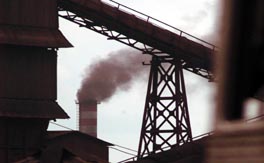World economic and social survey 2009: promoting development, saving the planet
 The latest annual UNDESA report released by Sunita Narain, director of Centre for Science and Environment backs India and developing countries on the climate front.It says that rich countries had consumed more than fair share oftheir carbon space and needed to take deep emission cuts if the new climate agreement was to be equitable.
The latest annual UNDESA report released by Sunita Narain, director of Centre for Science and Environment backs India and developing countries on the climate front.It says that rich countries had consumed more than fair share oftheir carbon space and needed to take deep emission cuts if the new climate agreement was to be equitable.
This report published by the UN Department of Economic and Social Affairs, sees little benefit in ad hoc incremental actions, spelling out instead the potential of a big investment push to deliver on both reducing greenhouse gas emissions and helping communities to cope with climate change, and calling for more truly integrated policy responses to development and climate challenges. It does not shy away from describing the enormity of the adjustments that will have to be undertaken by countries at all levels of development if progress is to be made; or from insisting that the advanced countries will have to deliver resources and leadership on a much larger scale than has been the case to date.
According to the report, active participation of all countries in tackling the climate challenge will only come about if developing countries can maintain rapid economic growth. This will require satisfying the growing energy needs of developing countries: the energy-generating capacity of developing countries is projected to double that of developed countries in the coming decades. This raises the question for climate change negotiators of how poor countries can pursue low-emissions, high-growth development.
